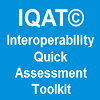
Covered by:
|
Formulate a long-term preservation policy for information related to European public services and especially for information that is exchanged across borders. Supporting Solutions |
| Legal initiative | Description | Recommendations |
|
Status: In force and transposed |
The directive promotes the use of open data and lays down the legal framework for the reuse of public-sector information such as geographical, land registry, statistical or legal information held by public-sector bodies or public undertakings, and of publicly funded research data. Public-sector bodies and public undertakings must make their documents available in any pre-existing format or language and, where appropriate, by electronic means in formats that are open, machine readable, accessible, findable and reusable, complete with their metadata. | Recommendation 18 |
|
Status: In force |
The General Data Protection Regulation (GDPR) allows European Union (EU) citizens to better control their personal data. It also modernises and unifies rules allowing businesses to reduce red tape and to benefit from greater consumer trust. The GDPR is part of the EU data protection reform package, along with the data protection directive for police and criminal justice authorities. |
Recommendation 18 |
|
Status: In force and transposed |
The Electronic Identification and Trust Services (eIDAS) Regulation creates a new system for secure electronic interactions across the EU between businesses, citizens and public authorities. It aims to improve trust in EU-wide electronic transactions and to increase the effectiveness of public and private online services and e-commerce. It applies to: - electronic identification (eID) schemes notified to the European Commission by EU countries; and - trust service providers based in the EU. It removes existing barriers to the use of eID in the EU. For instance, it would now be straightforward for a Portuguese firm to tender for a public service contract in Sweden, while EU funding grants can be managed wholly online. A revision of the eIDAS Regulation has been proposed, see: Proposal for a Regulation of the European Parliament and of the Council amending Regulation (EU) No 910/2014 as regards establishing a framework for a European Digital Identity, URL: https://op.europa.eu/en/publication-detail/-/publication/5d88943a-c458-… |
Recommendation 18 |
|
Status: In force |
This regulation aims to improve checks at the EU’s external borders, allow for better detection of security threats and identity fraud, and help in preventing and combating illegal immigration. | Recommendation 18 |
|
Status: In force and transposed |
This Directive proposes a wide-ranging set of measures to boost the level of security of network and information systems (cybersecurity) to secure services vital to the EU economy and society. It aims to ensure that EU countries are well-prepared and are ready to handle and respond to cyberattacks through: - the designation of competent authorities, - the set-up of computer-security incident response teams (CSIRTs), and - the adoption of national cybersecurity strategies. - It also establishes EU-level cooperation both at strategic and technical level. Lastly, it introduces the obligation on essential-services providers and digital service providers to take the appropriate security measures and to notify the relevant national authorities about serious incidents. |
Recommendation 17 |
|
Status: In force and transposed |
This Directive aims to better protect individuals’ personal data when their data is being processed by police and criminal justice authorities. It also aims to improve cooperation in the fight against terrorism and cross-border crime in the EU by enabling police and criminal justice authorities in EU countries to exchange information necessary for investigations more efficiently and effectively. The Data Protection Directive for Police and Criminal Justice Authorities is part of the EU data protection reform package along with the General Data Protection Regulation (Regulation (EU) 2016/679). | Recommendation 18 |
|
Status: In force |
It aims to to improve checks at the EU’s external borders, allow for better detection of security threats and identity fraud, and help in preventing and combating illegal immigration. | Recommendation 18 |
|
Concrete example/good practice |
Summary |
|
Two main initiatives characterize Norway’s efforts to foster cooperation and coordination among public administrations. The first one is the revision (in 2019 and 2020) of the architecture principles for public sector digitalization which goal is to foster the public sector’s interoperability and interactions with businesses. The implementation of the architecture principles is mandatory for public administrations at the national level and recommended for those at the sub-national level (e.g. municipalities). The second initiative is the publication of the Norwegian Interoperability Framework (NIF) in 2018. It is a national transposition of the European Interoperability Framework (EIF) that aims to help public administrations in defining, developing and managing digital public services, including cross-sectorial ones. Norway’s experience highlighted the importance of stakeholder involvement and participation, and thus of collaboration, to improve interoperability. |
| Solution | Description | Associated Recommendations |

Data models |
The use of CISE specifications and data models, helps to ensure that public administrations are taking into account relevant EU recommendations on standards and specifications in the maritime domain and are seeking to make the approach consistent across borders. | Recommendation 18 |

eArchiving |
The eID Building Block allows public administrations and private service providers to easily extend the use of their online services to citizens from other Member States, in line with the eIDAS Regulation. | Recommendation 18 |

Generic technical specification for the interoperability of powers and mandates |
The main objective is to create a shared European data model about representation powers and mandates, which allows powers/mandates information originated in the information systems of one country to be directly processed automatically by the information systems in other country. The data model will be tested in real life through pilots with some MS and the technical specification will be put forward to the CEF eID Operational Management Board for endorsement and proposed to be incorporated in the CEF eID sample implementation and extension of the CEF eID technical specifications. | Recommendation 18 |

Interoperability Quick Assessment Toolkit (IQAT) |
The objective of the IQAT© is to allow Solution Owners to assess the Potential Interoperability of their software solutions supporting Public Services. The toolkit is based on a specific conceptual model for the Interoperability assessment of software solutions, which relies on four interoperability areas: Interoperability (IOP) Governance, Software Architecture, |
Recommendation 18 |

Multilingual semantic indexing |
This public multilingual knowledge management infrastructure will support e-commerce solutions, such as machine translation, localisation and multilingual search, by creating interoperable multilingual classifications and terminologies that will be easily reusable by small and medium-sized enterprises (SMEs) and public administrations. SMEs are currently at a disadvantage compared to big companies due to the high cost of providing multilingual services. | Recommendation 18 |

Re3gistry |
Re3gistry provides a central access point that allows labels and descriptions for reference codes to be easily looked up by humans, or retrieved by machines. It supports organisations in managing and updating reference codes in a consistent way, so that all versions of a code remain traceable and properly documented, and do not change or disappear over time. Type of solution: Generic tool |
Recommendation 18 |

Reference Architecture for e-Documents (produced in previous phases of the |
The presented architecture is based on the analysis about the exchange of e-Documents in 16 selected Member States, available here. Please use this report as a supporting document for the presented reference architecture and as a source of detailed information about the solutions used in the analysed Member States. | Recommendation 18 |

LIMAPS v1.0.0 |
This is the Beta version of the Legal Interoperability Maturity Assessment of a Public Service (LIMAPS) survey. This Beta version of the LIMAPS Survey has been released on the 21 April 2020 on Joinup. It is a user-friendly online questionnaire, designed as a self-assessment tool to assist public service owners to evaluate key legal interoperability aspects of their digital public service. The current Beta version of LIMAPS (LIMAPS v1.0.0 Beta) is available at the EU survey portal: https://ec.europa.eu/eusurvey/runner/limaps-beta. |
Recommendation 18 |

